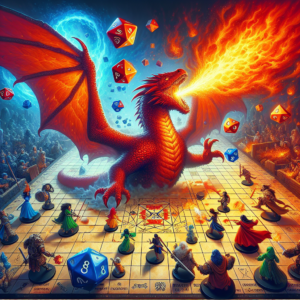
Introduction to The Game (Mind Game)
The Game is a psychological, social phenomenon that challenges participants to avoid thinking about “The Game” itself. When someone thinks about The Game, they lose, which prompts a mixture of internal conflict and strategic thinking among players. Unlike traditional games with defined rules and goals, this mind game hinges on self-awareness, social interactions, and the psychological implications of thought control.
Core Rules and Objectives
1. Know About The Game: The Game starts once a player is aware of its existence.
2. Avoid Thinking About The Game: The main objective is to forget about The Game entirely; any thought or mention of The Game means the player has lost.
3. Communication: Players can inform others about The Game, but doing so can lead to their loss when the other party subsequently thinks about it.
4. Winning and Losing: There are no traditional winners, as thinking about The Game results in a loss. However, players can ‘win’ by not thinking about it, which is temporary and can be disrupted by reminders or discussions about it.
5. Continuous Cycle: Upon losing, players typically announce their loss to others, which resets the cycle for them and spreads awareness of The Game.
Psychological Strategies for Winning
1. Mindfulness and Distraction Techniques: Focus on mindfulness practices to increase awareness of thoughts. Engage in distractions that keep your mind occupied with other, non-related thoughts.
2. Alter Thought Patterns: Develop cognitive strategies to redirect thoughts when reminded of The Game. For instance, create a mental list of things to think about whenever The Game comes to mind.
3. Social Dynamics: Use social situations to your advantage. If you’re in a group with players, steer conversations towards topics that avoid reminders of The Game, creating a shared experience that can help everyone collectively forget.
4. Humor and Acceptance: Acknowledge the absurdity of The Game when it comes to mind, laughing it off rather than stressing over losing, which can create a lighter mindset towards the game itself.
5. Set Goals: Create personal goals that take precedence over thinking about The Game, providing motivation to stay focused on other pursuits.
Common Mistakes and How to Avoid Them
1. Overthinking: Trying too hard to forget can ironically lead to more thoughts about The Game. Instead, practice acceptance of the thoughts and gently redirect your focus.
2. Incessantly Avoiding Discussion: Actively avoiding all mention of The Game can create a tension that makes you more likely to lose when it arises. Share your experiences casually to neutralize its impact.
3. Giving Up: Players may feel frustrated after frequent losses, leading to withdrawal from the shared experience. Embrace the game’s sociability, as frequent reminders can turn the game into a humorous activity rather than a serious challenge.
4. Excessive Honesty: Some players feel compelled to announce when they lose. While this is part of the rules, it can trigger others’ thoughts. Establish boundaries on who you discuss The Game with to minimize triggering reminders.
5. Ignoring Personal Triggers: Identify specific scenarios or topics that most often lead to your loss. Make conscious efforts to limit exposure to these triggers whenever possible.
Real-life Applications of Game Principles
1. Cognitive Behavioral Therapy (CBT): The principles of The Game parallel CBT techniques that encourage individuals to reframe negative thinking patterns and distractions.
2. Stress Management: By redirecting focus from stress-inducing thoughts to more productive or enjoyable activities, players can cultivate better mental health strategies.
3. Social Dynamics: The dynamics of communicating about The Game reflect real-life situations in group settings where collective agreements or groupthink can create shared experiences or common distractions.
4. Mindfulness Practices: The Game illustrates the importance of being present and aware of one’s thoughts and emotional responses, reinforcing practices seen in mindfulness methodologies.
5. Team Bonding: The playful nature of The Game can be used in team-building exercises to enhance camaraderie, laughter, and reduce tension in group dynamics.
Through understanding and engaging with The Game, players can develop a deeper appreciation for cognitive control, social interactions, and psychological strategies that can extend beyond the confines of the game itself into daily life.


